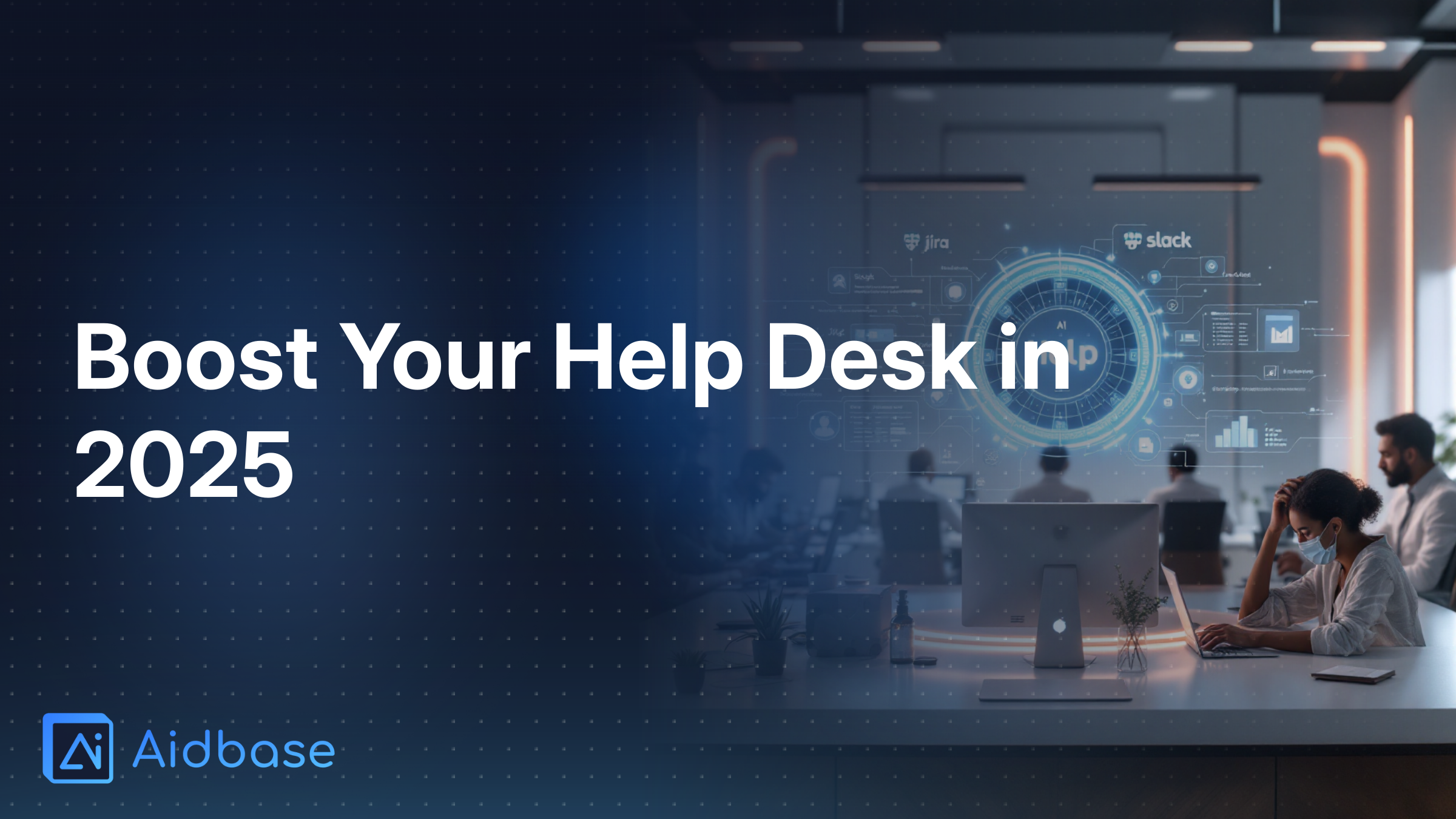Help desks are transforming from reactive support centers into proactive, A...

In recent years, help desks have undergone a tremendous transformation. No longer just reactive support centers, they are evolving into dynamic interaction hubs powered by AI. By leveraging cutting-edge integrations, IT teams and support managers can now automate processes, improve communication, and drastically reduce response times. Let’s dive deep into the evolution of help desks and explore the integrations that are setting the stage for an efficient and customer-centric future in 2025.
Help desks once relied heavily on manual ticket routing and lengthy email exchanges, but the growing volume of customer queries demanded smarter solutions. With the advent of AI, help desks have moved beyond simple support functions to become proactive communication centers. Early chatbots have evolved into sophisticated AI agents capable of understanding natural language, learning from interactions, and even summarizing lengthy conversations. These advancements not only streamline workflows but also improve customer satisfaction and agent productivity. As support needs become more complex, the integration of AI into every support strategy is proving vital.
The integration of AI into help desk operations is more than a trend—it’s a strategic necessity. AI-powered tools reduce repetitive tasks, speed up problem resolution, and empower agents with timely information that leads to better customer experiences. In 2025, these integrations are particularly crucial because of:
These benefits are evident as modern tools combine machine learning with advanced analytics, transforming traditional help desks into strategic assets.
Slack has long been a go-to platform for team collaboration, and its integration with AI—known as Slack GPT—is a game changer. Slack GPT generates conversational responses and produces accurate summaries of lengthy discussions. This AI function reduces the time spent on answering repetitive queries and ensures that critical discussion points are captured and easily referenced. With clearer internal communication and faster information dissemination, support teams can quickly align on solutions, making customer interactions seamless. Tools like Aidbase also complement these setups by providing additional AI support and insights.
Jira has become synonymous with efficient issue tracking and project management. Integrating AI into Jira can transform how support tickets are managed. AI modules can prioritize tickets, categorize issues based on historical data, and even predict potential bottlenecks in workflows. The integration facilitates:
This real-time intelligence not only expedites ticket resolution but also drives continuous process improvements.
Notion has emerged as a powerful tool for knowledge sharing and internal documentation. With the addition of Notion AI, teams can automate the organization of vast amounts of information and streamline collaboration efforts. Key benefits include:
By keeping internal documentation current and easily accessible, Notion AI plays a pivotal role in enhancing support team efficiency.
Zendesk's AI-driven platform represents the next generation of customer support tools. Its advanced capabilities include:
These features, detailed in recent coverage on TechRadar, allow Zendesk to enhance customer interaction and ensure that support teams are equipped with the right tools for real-time engagement.
ServiceNow continues to lead in IT service management by integrating AI to automate routine workflows. Although specific AI features for ServiceNow in 2025 are still emerging, the platform is expected to:
These advancements ensure that IT workflows become more proactive, reducing friction and enabling faster resolution times.
Freshdesk’s Freddy AI is at the forefront of AI-driven customer support. Freddy AI leverages natural language processing to:
Though it offers more basic AI features compared to highly specialized solutions, Freshdesk's integration is effective for transforming customer support operations quickly and efficiently, as highlighted by research on eesel.ai.
Microsoft Teams is another robust tool that, when integrated with AI, can significantly enhance help desk operations. The platform offers a unified interface where teams can manage live chats, video conferencing, and document sharing. AI integration in Microsoft Teams can:
This integration ensures that help desk teams remain agile and well-coordinated even during peak times.
Intercom brings a proactive twist to customer engagement by integrating advanced AI capabilities. With its tools, support teams can:
This proactive stance helps build more robust relationships with customers, ensuring they feel heard and valued from the outset.
Monday.com has expanded its offerings to include AI-driven solutions for help desk support teams. With advanced automations and personalized workflows, Monday.com facilitates:
As showcased in monday.com’s blog, this integration not only boosts productivity but also allows teams to focus on providing quality customer service.
The future of help desk technology is bright, driven by AI integrations that continuously reshape how support teams operate. With tools like Slack GPT, Notion AI, and Zendesk’s advanced agent builders, help desks are moving toward a more efficient, interconnected, and responsive model. As IT support demands evolve, integrating AI will play a central role in ensuring that customer interactions are both swift and satisfying. By staying abreast of these developments and embracing future trends, organizations can transform their help desks from reactive problem solvers to proactive communication hubs, ready to tackle the challenges of tomorrow.